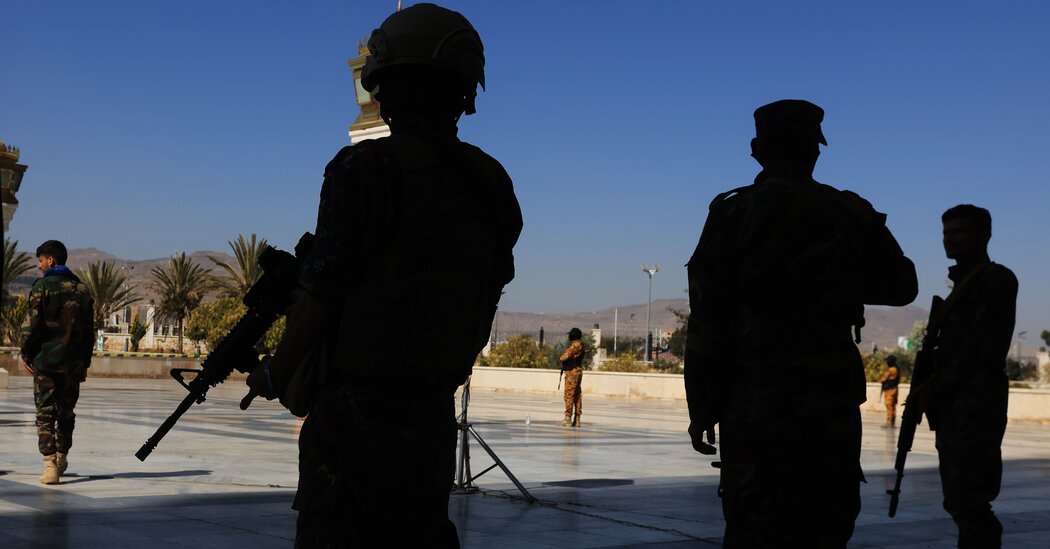The United Nations announced on Monday that it was suspending all humanitarian operations in a large Houthi-controlled area in northern Yemen in response to the arbitrary detention of its staff, which it said created hostile conditions for aid work.
The U.N. secretary general, António Guterres, made the decision because the Houthis detained eight more U.N. staff members in late January, bringing the total arrested since 2021 to 24, said Farhan Haq, a U.N. spokesman.
Mr. Haq said the Houthis had violated an agreement reached in December with the U.N. to stop detaining the global agency’s staff and to find a pathway to releasing those in their custody. Less than a month later, the group arrested eight more workers on murky charges of espionage and foreign intervention.
“This extraordinary and temporary measure seeks to balance the imperative to stay and deliver with the need to have the safety and security of the U.N. personnel and its partners guaranteed,” the U.N. said in a statement.
The U.N. also said it had stopped all staff travel to Houthi-controlled areas after the detentions.
The Houthis, the de facto rulers of parts of Yemen including the capital, Sana, are backed by Iran. They have been engaged in a campaign of kidnappings and detention of hundreds of people who work for the U.N. and foreign nongovernment agencies, along with dozens of current and former Yemenis employed by the U.S. government, according to the U.N.
The U.N. did not clarify how many Yemenis were affected by the suspension of its humanitarian aid operation, which it said included providing food, clean water and medical kits. But the U.N. identifies Yemen as having the world’s largest humanitarian crisis, with 80 percent of its 24.1 million people in need of essential aid and three million displaced.
Saada, the area where the U.N. suspended operations, is north of Sana and has a population of about one million people. Several U.N. agencies operate in Saada, including the World Food Program, the World Health Organization, UNICEF and other aid groups.
Mr. Haq, the U.N. spokesman, said the decision to stop operations did not come easily and was heavily debated within the organization. “This is not a normal procedure or something we do frequently,” he said, adding that the decision reflected the gravity of the safety concerns for the U.N.’s operations in Yemen.
The U.N. operates in war zones around the world, including Gaza, Myanmar, Sudan and Ukraine, and its staff faces high risks and duress, but it seldom shuts down its operations. In the war in Gaza, for example, the U.N. has said that nearly 300 of its staff members have been killed in the Israel-Hamas war in Gaza — the highest number of U.N. employees killed in any conflict — but the work continued.
Mr. Haq said that U.N. staff members have diplomatic immunity and must be protected. The hope was, he added, that a pause in operations in Yemen would provide space for negotiations with Houthis to guarantee safe conditions for the U.N. to resume its work.


